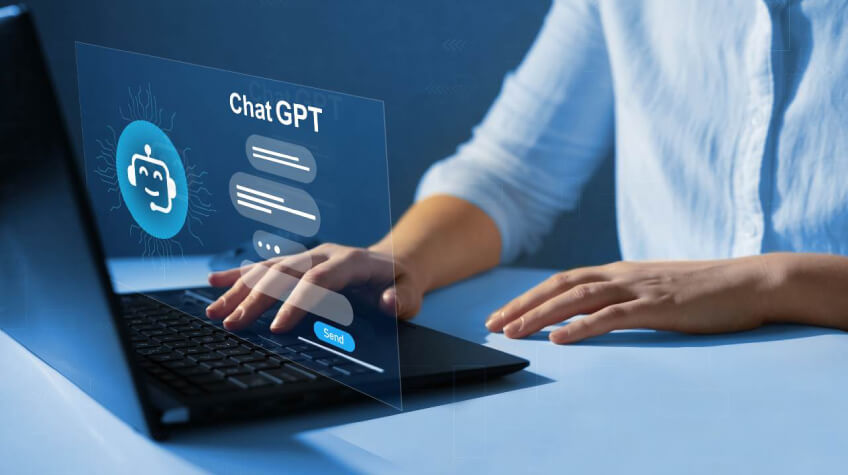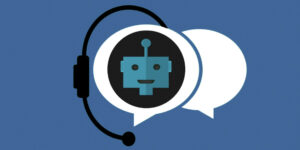
Welcome to the world of possibilities with ChatGPT, the cutting-edge technology designed to enhance your small business! As a small firm entrepreneur, you comprehend the significance of effective communication with your customers, clients, and prospects. With ChatGPT, you can bring your contact to the subsequent stage by utilizing the capability of conversational AI.
ChatGPT is a powerful tool that can help your small business in various ways, including improving customer experience, streamlining customer service, and increasing engagement. Using ChatGPT, you can provide 24/7 customer support without hiring additional staff, ensuring that your customers’ inquiries are answered promptly and efficiently.
Moreover, ChatGPT can also help you with lead generation and sales. It can interact with your website visitors, answer their queries, and help them find what they’re looking for, ultimately leading to more conversions and increased revenue for your business.
In short, ChatGPT is a versatile and cost-effective key that can provide your small company the competitive advantage it requires to prosper in the competitive market.
With ChatGPT, you can bring your customer engagement to the next level, providing a seamless and customized service that will keep your buyers returning. In this blog, we go through how to utilize ChatGPT for small businesses.
What is ChatGPT
ChatGPT is a progressive language system created by OpenAI that utilizes state-of-the-art natural language processing techniques to facilitate natural conversations.
It is an artificial intelligence (AI) technology that can generate responses to text-based queries, simulating human-like conversations in real time. ChatGPT can converse on a wide range of topics, using its vast knowledge base and contextual understanding to provide relevant and accurate responses to user queries.
ChatGPT’s advanced capabilities have made it an indispensable tool for various industries, including customer service, education, and e-commerce. It can help businesses automate customer service, provide personalized customer recommendations, and generate creative content.
With its ability to learn and adapt to user behavior over time, ChatGPT represents a significant step forward in conversational AI, providing businesses with a powerful tool for engaging with their customers and users.
Also see: OpenAI Introduces ChatGPT Plus, Starting at $20 Per Month
How can you utilize chatGPT for your micro business?
Here are some modes you can use ChatGPT to benefit your micro business:
- Generate content ideas for your blog or social media platforms.
- Use ChatGPT to create automated responses to common customer inquiries and support requests.
- Use ChatGPT to create personalized email marketing drives reverberating to your intended uses.
- Utilize ChatGPT to gather customer feedback via chatbot surveys or polls.
- Use ChaptGPT to analyze customer data and form better desired marketing and sales plans.
- Use ChatGPT to generate your business’s product descriptions, marketing copy, or other written materials.
- Utilize ChatGPT to identify and prioritize potential business development and expanding opportunities.
- Use ChatGPT to research and analyze industry trends and best practices.
- Use ChatGPT to create a consumer assistance chatbot that can provide quick and efficient support to your consumers.
- Utilize ChatGPT to generate reports and analytics that can assist you in making data-directed business solutions.
How can chatGPT be utilized for lead generation for micro businesses
Here are a few modes you can operate ChatGPT for lead generation in your small businesses:
- Use ChatGPT to develop a chatbot that can capture visitor information on your websites or social media pages, such as contact details or interests.
- Utilize ChatGPT to engage with visitors in real time and qualify them as potential leads by asking relevant questions and assessing their needs.
- Use ChatGPT to offer personalized recommendations or solutions to visitors based on their interests, preferences, or pain points.
- Utilize ChatGPT to provide valuable information or resources, such as whitepapers, e-books, or guides, in exchange for visitor contact details.
- Use ChatGPT to develop a drip email campaign that nurtures leads and provides them with relevant information or offers over time.
- Utilize ChatGPT to identify and target visitors who have abandoned their shopping carts or failed to complete a transaction, offering them incentives or support to convert them into leads.
- Use ChatGPT to analyze visitor data and behavior to identify patterns or trends that can help you refine your lead generation strategy.
- Utilize ChatGPT to integrate your existing customer relationship management (CRM) strategy, allowing you to easily follow and drive leads as they progress via your sales channel.
- Use ChatGPT to develop targeted social media ads that drive visitors to your website or landing pages and encourage them to engage with your chatbot.
- Use ChatGPT to track and measure key performance metrics, such as conversion, click-through, or bounce rates, and use this data to optimize your lead generation strategy.
How can a micro business proprietor build a chatbot using chatGPT?
Here are some steps a small business owner can take to build a chatbot operating ChatGPT:
- Define the purpose of your chatbot and identify the key tasks it should perform, such as answering common customer inquiries, providing support, or collecting information from visitors.
- Choose a platform or tool for building your chatbot, such as Dialogflow, Tars, or ManyChat that is compatible with ChatGPT.
- Train and fine-tune your ChatGPT model using a relevant dataset or custom data specific to your business and use case.
- Integrate ChatGPT into your chatbot platform or tool using an API or a pre-built connector that allows you to communicate with the model.
- Develop the conversational flow of your chatbot, mapping out the different paths or scenarios a user might encounter when interacting with your bot.
- Write the prompts, questions, and responses your chatbot will use to engage with users and provide information or support.
- Test your chatbot to ensure it functions as intended and can handle various user inputs and scenarios.
- Launch your chatbot and promote it through your website, social media, or other marketing channels, encouraging users to engage with it and provide feedback.
- Monitor your chatbot’s performance using analytics and user feedback, making adjustments and improvements to optimize its effectiveness.
- Continue to refine and improve your chatbot over time, using user data and feedback to identify areas for improvement and new features or functionality to add.
Does building a chatbot utilizing chatGPT require familiarity with coding
- A basic understanding of coding is needed to create a chatbot using ChatGPT.
- However, you can be someone other than an expert programmer to create a chatbot with ChatGPT.
- The coding level depends on the chatbot’s complexity and the medium it is positioned.
- Some platforms offer user-friendly interfaces to create chatbots with minimal coding.
- You will require to learn how to incorporate APIs into your chatbot.
- To train the model effectively, you should be familiar with natural language processing (NLP).
- Familiarity with Python programming language can be helpful.
How can I incorporate a chatbot from chatGPT into my internet site?
- You can use a chatbot platform or build your chatbot using ChaptGPT.
- To integrate a chatbot from ChatGPT, you will need to use its API.
- Enlist and acquire an API key from the OpenAI platform.
- Use a web development framework or platform that supports integration with APIs.
- Write code to integrate the ChatGPT API with your website and send and receive messages.
- Depending on the platform, you must add the code to your website’s front-end or back-end.
- Check the chatbot to confirm it is functioning as expected.
- You may need to tweak the chatbot’s design and flow to fit your website’s style and needs.
More on this topic: 10 Easy Ways to Fix ChatGPT Not Working
FAQs
1. What is a chatbot?
Chatbot is an artificial intelligence software program simulates human conversation, answers questions, or completes user tasks.
2. How do chatbots work?
Chatbots utilize natural language processing (NLP) to comprehend user infusion and reply appropriately. They are typically programmed with responses based on specific keywords or phrases.
3. What are the advantages of utilizing a chatbot?
Chatbots can save time and resources by automating duties and furnishing immediate answers to requested queries. They can also provide a more personalized and engaging user experience.
4. Can I create my chatbot?
Yes, many chatbot platforms and tools are obtainable, making it effortless to build your chatbot. Some platforms even offer pre-built templates and integrations with popular messaging apps.
5. Do I require coding knowledge to build a chatbot?
Basic coding knowledge is helpful, but only sometimes it’s necessary. Many chatbot platforms offer user-friendly interfaces and drag-and-drop tools that make creating a chatbot without extensive coding experience easy.
6. What are the common uses of chatbots?
Chatbots are used for customer support, lead generation, e-commerce, and HR. They can even be utilized for planning meetings, answering FAQs, and providing personalized recommendations.
7. How can I gauge the triumph of my chatbot?
You can measure the success of your chatbot by tracking metrics such as engagement, user satisfaction, and task completion rates. You can also utilize A/B testing to differentiate chatbot designs and determine the most valuable functions.
In conclusion, ChatGPT offers a powerful and accessible tool for small businesses to improve customer engagement and support services. By utilizing ChatGPT’s natural language processing capabilities, small businesses can provide personalized and responsive customer support.
With the ability to automate repetitive tasks and provide quick answers to frequently asked questions, ChatGPT can support micro businesses to save time-duration and funds, letting them concentrate on growing their business.
Additionally, by integrating ChatGPT into their websites or social media platforms, small businesses can create a more engaging and interactive user experience, which can help build customer loyalty and brand awareness.
Overall, by leveraging the power of ChatGPT, small businesses can improve their customer service and create a more competitive edge in today’s rapidly changing digital landscape. We hope this blog on how to utilize ChatGPT for small businesses is useful to the readers.






